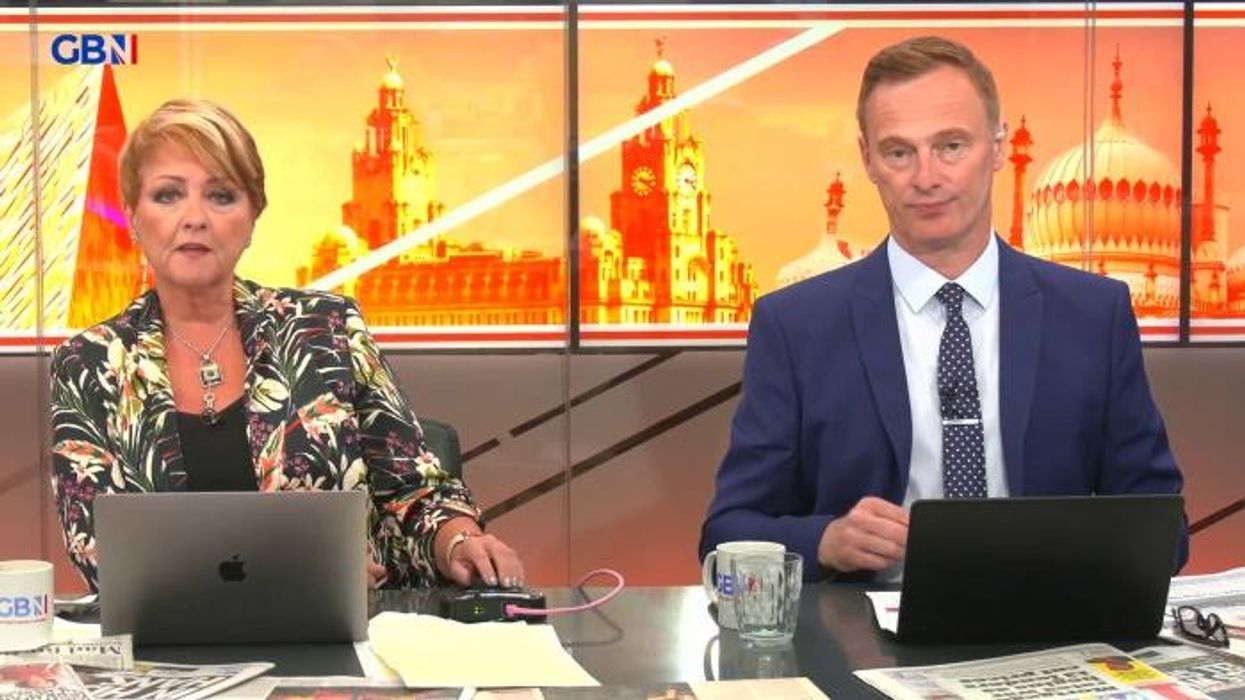Mortgage warning: Sub-4% rates may be 'first to go' as inflation hits 3% – Britons urged to secure a deal or face £3,000 rise in payments

It comes as both Barclays and Santander have launched two and five-year fixed rate mortgages at 3.99 per cent
Don't Miss
Most Read
Latest
Sub-four per cent mortgage rates "may be the first to go" following today's unexpected inflation jump.
Homeowners coming off their fixed rate deals this year are urged to secure the lowest rates available before any lenders make changes.
UK inflation rose to three per cent this morning, threatening recent trends towards lower mortgage rates, with sub-four per cent deals potentially at risk.
The rise, announced in new ONS figures on Wednesday, exceeded analysts' predictions of 2.8 per cent and marks an increase from December's 2.5 per cent.
Major lenders had recently introduced fixed mortgage rates below four per cent following the Bank of England's latest base rate cut. Both Barclays and Santander have launched two and five-year fixed rate mortgages at 3.99 per cent.
However, mortgage experts warn these competitive rates may now be short-lived as financial markets react to the higher-than-anticipated inflation figures.
 Mortgage payments are expected to rise for those coming to an end of their fixed-rate term | GETTY
Mortgage payments are expected to rise for those coming to an end of their fixed-rate term | GETTY Homeowners coming to the end of their fixed-rate mortgages are already facing significant payment increases, with new Barclays data showing average rises of £243 per month.
The figures reveal that 14 per cent of those who remortgaged in the past year experienced payment increases, with nearly 60 per cent seeing their monthly costs rise by an average of £242.70. This translates to an annual increase of £2,912.40 for affected households.
The payment shock is particularly acute for those who secured their previous mortgages before mid-2022, when rates were considerably lower.
Despite the Bank of England base rate falling from its 5.25 per cent peak to 4.5 per cent, most homeowners remain locked into fixed-rate deals.
Those coming out of fixed deals this year are urged to secure a low rate or could face paying even more than the average figures.
Matt Smith, a mortgage expert at Rightmove, said: "This mornings unexpectedly high inflation figure is likely to have a knock-on effect to some of the early momentum we were starting to see in mortgage rates coming down, as the financial markets react today.
"We'd hoped for a sustained period of gradual falls, but with inflation increasing by 0.2 (percentage points) more than the market expected, we can expect to see a change in that direction.
"Any news which deviates from market forecasts, is likely to cause rates to rise or fall. Over the coming days, the sub-four per cent rates that had only just started to come out may be the first to go as mortgage lenders re-look at what they can offer home movers."
Jason Tebb, president of OnTheMarket, warned that the unexpected inflation rise could delay future interest rate reductions.
LATEST DEVELOPEMENTS:
He said: "With inflation rising unexpectedly to three per cent, the next rate reduction may be pushed back a little as the Bank of England keeps a close eye on inflationary pressures in coming months.
This follows two interest rate cuts in the latter half of last year and one this month, which had previously boosted market confidence.
Jonathan Handford, managing director at Fine & Country, cautioned that persistent inflation could lead to prolonged higher borrowing costs.
He warned: "If inflation continues to climb, the Bank of England may take a more cautious approach, potentially delaying further rate cuts this year. For buyers, this adds uncertainty, as higher inflation could keep borrowing costs elevated for longer.

Mortgage costs could rise due to the inflation figures
| GETTY"Looking ahead, the key question remains whether the economy can sustain this positive trajectory. While further rate cuts could stimulate the market, much will depend on the Governments ability to manage inflation effectively."
The average UK house price reached £268,000 in December 2024, showing 4.6 per cent annual growth following November's 3.9 per cent rise.
In England, prices increased to £291,000 (4.3 per cent annual growth), while Wales saw rises to £208,000 (three per cent) and Scotland to £189,000 (6.9 per cent).
Northern Ireland recorded the strongest growth, with prices up nine per cent to £183,000 in the fourth quarter of 2024.
Within England, the North East led regional growth at 6.7 per cent while London showed the weakest performance at zero per cent.
The housing market has seen increased activity, with property listings up 11 per cent compared to last year.











